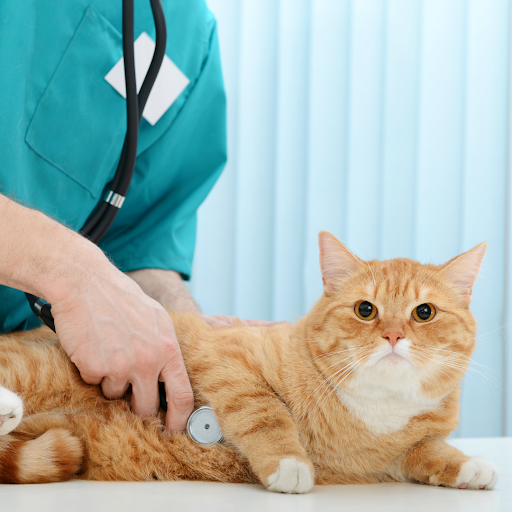Disaster Preparation Tips for Pet Owners
Are you prepared for when disaster strikes? What about your furry friends? Pets are just as vulnerable in a natural disaster as humans and need just as much preparation. Follow these tips to ensure your pet is safe and secure during a natural disaster.
Keep up-to-date with your pet’s parasite-preventative medication
Parasites thrive in warm, moist climates, so the best way to protect your pet is by administering regular preventative medication. Ask your vet for specific instructions on which types of medications you should use and when they should be issued. In addition to preventive medications, pet owners should also consider a hurricane safe-zone. This can be an interior room of your home or an enclosed area that is not likely to experience flooding.
It should also have plenty of food and water, extra blankets for warmth and comfort, and some favorite toys for entertainment. If you’re evacuating with your pet, make sure you have a plan that includes finding pet-friendly shelters or hotels. If possible, keep your pet’s medical records and medications with you. This way, if there is an emergency, the shelter can provide appropriate treatment for them.
Maintain a clean and safe environment for your pet
Make sure there are no standing water areas around the house, as these can be an ideal breeding ground for parasites. Regularly clean your pet’s bedding, toys, and food bowls with hot soapy water or disinfectant wipes. Make sure that any food or treats are stored in sealed containers.
Keep your pet’s area free of debris and clutter to reduce the risk of injury if you need to evacuate quickly. A well-maintained home is also essential for overall pet health and safety. Whether you’re in an area prone to natural disasters or not, it’s always a good idea to have emergency kits ready and available. But what’s best is to make special kits for your pets to help them stay safe in a disaster.

Keep your pet away from other animals that may have parasites
If you see any signs of fleas, ticks, or other parasites on a pet in your area, keep your pet away from them. Make sure your pet’s vaccinations are up to date. This will help protect them against common illnesses, including rabies and distemper. In addition, keep your pet up to date on heartworm and other parasite preventatives, as well as flea control treatments. This will help protect them from these pests in a disaster.
If you need to evacuate, you must ensure your pet is included in your evacuation plans. Have an up-to-date list of all your pets, including photos and descriptions. Have a plan for where your pet will stay if you can’t take them with you or find temporary housing near you. Keep carriers, leashes, and favorite toys or blankets ready to go in case of an evacuation.
Be cautious when outdoors with your pet
Monitor your pet closely outdoors and check for any signs of fleas or ticks frequently. Avoid standing water or areas that appear to be famous breeding grounds for fleas and ticks. As the weather changes, keep an eye out for rising temperatures or flooding that could be hazardous to your pet. If the weather forecast predicts a natural disaster, such as a hurricane, tornado, or snowstorm, make sure to create an emergency plan for your pet.
This should include extra food and water, first-aid supplies, medications, and vaccination records if you need to evacuate. Proper planning and preparation can help ensure your pet’s safety during a disaster. Include your pet in any evacuation plans as early as possible. If you must evacuate and cannot take your pet with you, contact friends or family members who can adequately care for them until it is safe for them to return home.

Practice good hygiene with your pet
Regularly bathe your pet and brush their fur, removing any parasites you find. Also, always check under the fur of your pet’s neck, belly, and legs, where parasites are more likely to hide. Good practice in maintaining your pet’s good hygiene is to keep their bedding and sleeping areas clean. Also, make sure your pet’s vaccinations are up-to-date. Vaccinating your pet against common diseases such as rabies and distemper is the best way to ensure that they stay healthy even in a disaster.
Furthermore, talk to your vet about your pet’s health and any necessary vaccinations. Establishing a plan with your vet in an emergency is also essential. Knowing the closest animal hospital or veterinarian clinic in case, you must evacuate necessary. You should also see the contact information for these places and any special medical needs your pet has.
Make sure your pet has regular veterinary check-ups
This is particularly important if you plan on traveling with your pet, as parasites may be present in different regions of the country or world. Your veterinarian will have a better understanding of the local area and can help you to identify if there are any particular parasites to avoid. Also, have your pet’s medical records, including vaccination certificates.
Make sure to bring medications and a copy of their health certificate if you plan to travel with them. In this way, if there is a need for medical attention, you can provide your pet’s doctor with their full history. With the increasing availability of pet insurance policies, it is a good idea to look into this and ensure your furry friend is covered if something goes wrong during an emergency.

Monitor your pet’s fecal matter for any signs of parasites
If you spot anything unusual in your pet’s stool, take a sample to the vet for testing as soon as possible. Parasites that are left untreated can cause severe damage to your pet’s health, so it is essential to take any signs of infection seriously. Additionally, having your pet on a regular de-worming schedule can help reduce their chances of contracting parasites and other illnesses.
Stock up on emergency supplies for your pet during an evacuation. These items include a leash, collar, pet carrier, food and water dishes, enough food and water to last several days, medications (if any), grooming supplies, waste bags, and litter boxes. Keep these items in an easily accessible location so they can be quickly grabbed in an emergency.
Use flea and tick collars on your pet while outdoors
A flea collar or tick collar is a great way to protect your pet from pests that can carry diseases. Many collars contain insecticides and repellents to kill fleas, ticks, and other parasites. These collars should be used when your pet is outdoors, particularly in areas with more fleas and ticks. Remember to change the collar every few months, as their effectiveness will decrease with time. In addition, be sure to check your pet for fleas and ticks regularly and remove any that you find.
Ensure your pet is microchipped, and always wear a collar with an identification tag. If your pet ever becomes lost during an emergency, a microchip and identification tag are two essential things that can help reunite you with your pet. A microchip is a small chip implanted under the skin, usually between the shoulder blades, that contains an identification number linked to owner information.
Mow your lawn regularly to prevent flea infestations
Regular mowing will keep the grass short and make it difficult for fleas to hide and reproduce. If you are unable, ask your neighbors to help. It’s also essential to eliminate sources of standing water that can serve as breeding grounds for mosquitoes and other pests. Lawns are the primary breeding ground for fleas and other pests, so trimming them can help reduce the risk of flea infestations. It has to be done regularly to be effective.
It is also essential to keep your pet’s sleeping area clean. Make sure they have a clean, dry, and flea-free bed or blanket. Inspect the area for any signs of fleas or ticks. Vacuuming carpets and upholstered furniture can help reduce the risk of infestations.
Stay vigilant in preventing parasites from entering your home
Make sure any guest animals you allow into your home are free from parasites and keep an eye out for any signs of fleas or ticks that may have hitched a ride. If you spot any parasites, treat your home and keep it clean thoroughly.
To be prepared for any disaster, you should keep your pet’s medical and vaccination records safe. These documents will be helpful should you need to evacuate with your pet or seek veterinary care during an emergency. Be sure always to have at least two weeks’ worth of food and water stored in case stores run out due to the disaster. Additionally, it is a good idea to stock up on pet medications and supplies that your pet may require.
Summary
In conclusion, pet owners should take precautions when preparing for a disaster. Ensure your pet has proper identification, create an evacuation plan and pack a pet emergency kit. Consider enrolling in pet-friendly shelters and find out if you can board them with a local veterinarian ahead of time. Please keep your pets up to date on vaccinations and their medical records handy. Planning and preparation allow you to keep your pets safe during emergencies.
We understand the importance of being prepared for disasters at Furever Family Veterinary Care Center in East Moline, IL. We can help you create an emergency plan for your pet and recommend products to include in your pet’s emergency kit. If you need our help, please contact us at (309) 281-7026 to learn more!
Recent Posts
About Furever Family Veterinary Care Center
As an AAHA Accredited Veterinary Care Center, we care about your animals from nose-to-tail throughout their lifetime and have built our practice to support as much of your pet's needs here on site.
We have a deep love for every furry friend and know that they are part of your Family – and deserve to be treated that way.
